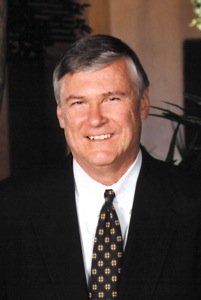
Mike Sullivan
“Leading-edge boomers,” the first wave of baby boomers, now in their mid-50s to mid-60s, grew up in the Age of Aquarius, a time when anything and everything was possible. They came to adulthood with a special sense of expectation and entitlement.
Economic prosperity enabled these boomers to focus on themselves, their needs and their self-fulfillment. Unlike in previous generations when conformity was a means to success, boomers were “individuals” who could break the rules with impunity.
Leading-edge boomers were disappointed when things didn’t work out as advertised. Instead of the “Good War,” they had Vietnam. Instead of Roosevelt’s fireside chats, they had Nixon’s “I am not a crook.” Instead of unending prosperity, they had gasoline lines and downsizing.
Today, their sense of missed opportunities and possibilities plays a major role in the way they view the world. Travel is important to them. They want to become what they thought they could be, even if only for a moment. They want the experience of the good life they thought they were going to have.
Unlike their parents, they don’t look at retirement as leisure, a deserved reward for hard work. Many expect to continue working in some way, and they see work as an adventure, as a basic part of their lives, not something separate. In the meantime, they want to reduce the stress in their lives and spend more time with their children and grandchildren.
As they become empty-nesters with fewer financial obligations, the basic boomer’s urge to spend gets a new boost. They’re reluctant to divert those extra dollars to saving for retirement. After all, they expect to keep working anyway, and today has always been more important than tomorrow.
“Trailing-edge boomers” are those in their mid-40s to mid-50s. As a group, they make up more than half of the boomer population. Their life-stage formative years when they came of age were the 1970s and early 1980s.
Those years were a time of downsizing and diminished expectations. It is easy to see why the trailing-edge boomers’ core motivational values are built around materialism, attractiveness, pragmatism and economic security.
Many are at a point in their lives when they are experiencing rising earnings as they move through the years in which households have their highest annual earnings. Many are married with young families, so issues around educational funding are important to them. Many are two-income families; both spouses are likely to hold jobs.
Taking care of themselves physically and mentally is another tie that binds individuals in this generation. Health and fitness are important to them. They participate in athletic and fitness programs. They are both participants and spectators in sports activities.
School ties are very important to them. They enjoy alumni meetings and school anniversaries. A large number of males in the age bracket have a military background.
What’s important to them?
Accumulating material possessions is a high priority. Add to this the dual influences of growing up under a difficult economy and the strong emphasis on materialism, and you can understand why this motivational driver has extraordinary power for this group today.
Having a sense of personal power and control — and not being vulnerable to life’s uncertainties — is important. For them, independence is less about choice and more about being in control of one’s life.
They are pragmatic about family matters, such as planning for their children’s college educations and their own financial security. Connectedness to family, friends and society is a powerful driver, since children of trailing-edge boomers may still be at home, in college or just starting their own careers. This allows them a high degree of social contact with family.
Like their older siblings, these boomers are well informed and skeptical, with very low expectations that Social Security will be there for them. They are proactive, self-sufficient and motivated by practical strategies to ensure financial security. Provide them with clear, actionable steps, and you will have an opportunity to create a loyal bank customer.
For information about bank sales training programs, contact Sullivan at mps50plus@aol.com or 704-554-7863 or visit www.linkedin.com/in/michaelpsullivan50plus.









